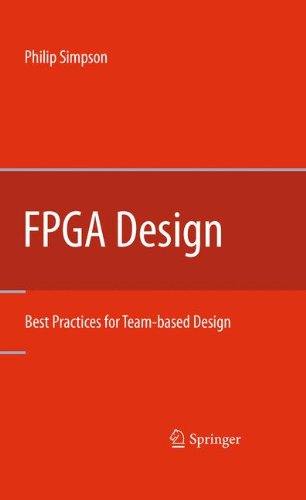

Most ebook files are in PDF format, so you can easily read them using various software such as Foxit Reader or directly on the Google Chrome browser.
Some ebook files are released by publishers in other formats such as .awz, .mobi, .epub, .fb2, etc. You may need to install specific software to read these formats on mobile/PC, such as Calibre.
Please read the tutorial at this link: https://ebookbell.com/faq
We offer FREE conversion to the popular formats you request; however, this may take some time. Therefore, right after payment, please email us, and we will try to provide the service as quickly as possible.
For some exceptional file formats or broken links (if any), please refrain from opening any disputes. Instead, email us first, and we will try to assist within a maximum of 6 hours.
EbookBell Team

4.4
82 reviewsFPGA Design: Best Practices for Team-based Design Philip Simpson Many Companies struggle with establishing a working FPGA design methodology across design teams in their Company. As design teams become more dispersed globally, the need increases for a standard design methodology. This book describes best practices for successful FPGA design. It is the result of the author’s meetings with hundreds of customers on the challenges facing each of their FPGA design teams. By gaining an understanding into their design environments, processes, what works and what does not work, key areas of concern in implementing system designs have been identified and a recommended design methodology to overcome these challenges has been developed. This book’s content has a strong focus on design teams that are spread across sites. The goal being to increase the productivity of FPGA design teams by establishing a common methodology across design teams; enabling the exchange of design blocks across teams. Coverage includes the complete FPGA design flow, from the basics to advanced techniques. • Presents complete, field-tested methodology for FPGA design, focused on design reuse across design teams; • Offers best practices for FPGA timing closure, in-system debug, and board design; • Details techniques to resolve common pitfalls in designing with FPGAs.